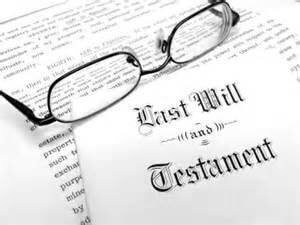
UNSIGNED WILL
 An appellate court in Michigan recently ruled that an unsigned will could be accepted into probate, which is contrary to centuries of estate law precedent.
An appellate court in Michigan recently ruled that an unsigned will could be accepted into probate, which is contrary to centuries of estate law precedent.
One of the oldest principles of estate law is that to be valid, a will must be signed by the testator. Generally speaking, the testator should have his/her signature notarized as well.
Even if the will was an informal one, known as a holographic will, that the testator wrote him or herself, it still needed to be signed. Somewhere on the document, the testator had to sign the document.
This has been the case for centuries. An appellate court in Michigan recently ruled otherwise, as the Wills, Trusts & Estates Prof Blog reported in "Unsigned Will? No problem!"
The court's decision rests on the interplay of two Michigan statutes, so it is not expected to spread to other states with different statutes.
The court decided that if the person presenting the will to the court can prove by clear and convincing evidence that it is the will of the deceased, then the court can accept the will for probate. Exactly how this can be proven without a signature is unclear.
Be aware that this is not the law in any other state.
If you want to create a will outside of Michigan, then you will need to follow the appropriate legal process in your state. The best way to do that is to see an estate planning attorney who can draft a valid will for you.
Reference: Wills, Trusts & Estates Prof Blog (August 7, 2017) "Unsigned Will? No problem!"